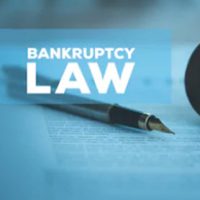What is the Student Borrower Bankruptcy Relief Act of 2024?

This proposed legislation would make student loans dischargeable in bankruptcy just like any other unsecured debt. But it faces an uncertain future.
On September 30th, House Judiciary Committee Ranking Member Jerrold Nadler and Subcommittee on Administrative Law, Regulatory Reform, and Antitrust Ranking Member Lou Correa re-introduced the Student Borrower Bankruptcy Relief Act of 2024. It would eliminate the section of the bankruptcy code that makes private and federal student loans nondischargeable, allowing these loans to be treated like nearly all other forms of consumer debt.
“This legislation is a crucial step in addressing the pervasive injustice of student loan debt that ensnares millions of Americans in a cycle of financial hardship. This legislation will empower borrowers to discharge their student loans in bankruptcy, restoring fairness and dignity to those striving for a brighter future. It is our responsibility to ensure that every individual has the opportunity to rebuild their lives and contribute meaningfully to our nation’s prosperity,” said Nadler.
House leadership immediately referred the bill to the Judiciary Committee, which as of November 2024 had taken no action.
New Discharge Rules
Whether or not this legislation becomes law, it’s much easier for a Chicago bankruptcy lawyer to discharge student loans in bankruptcy today than it was five years ago.
When Congress extensively overhauled the Bankruptcy Code in the 1970s, lawmakers added a “good cause” requirement to the student loan discharge provision. Courts later interpreted this provision narrowly. So, for many years, discharge was usually available only if the borrower developed a mental, physical, or other disability.
Nevertheless, a good Chicago bankruptcy lawyer could still usually obtain a partial discharge during bankruptcy mediation. If a debtor filed a motion for student loan discharge and the judge referred the matter to mediation, the bank had a legal duty to compromise in order to reach an agreement and avoid a trial.
So, just imagine what’s possible under the new discharge rules. These new rules focus on a totality of the circumstances, including such factors as the debtor’s:
- Age,
- Payment history,
- Ability to pay,
- Number of dependents, and
- Lifestyle needs.
Basically, in the before times, there was a presumption against student loan discharge in a Chapter 7 bankruptcy. Now, there’s a presumption in favor of discharge, or at least partial discharge.
Student loans, along with back taxes and a few other government-affiliated unsecured obligations, are priority unsecured debts in a Chapter 7 which are only dischargeable in certain situations.
Chapter 20 Repayment
Nevertheless, some people don’t qualify for discharge. So, most attorneys file Chapter 20 bankruptcies, which is a Chapter 7 followed by a Chapter 13.
A Chapter 7 allows debtors to test the student loan discharge waters. You don’t get anything unless you ask. If the judge denies the request, the judge at least discharges other unsecured debts, such as credit cards and medical bills, allowing debtors to shift money to student loan repayment.
Then, just as the automatic stay expires, an attorney files a Chapter 13 bankruptcy to extend the automatic stay and sets up a debt consolidation payment.
The automatic stay blocks most creditor adverse actions, such as lawsuits and wage garnishment. The income-based debt consolidation payment gives debtors up to five years to erase delinquency on student loans and other past-due obligations.
At the end of that Chapter 13, the debtor has a zero past-due balance and the means to make regular payments.
Work With a Thorough Cook County Lawyer
No matter what kind of financial problem you are having, bankruptcy could be a way out. For a free consultation with an experienced bankruptcy attorney in Chicago, contact the Bentz Holguin Law Firm, LLC. We routinely handle matters throughout the Prairie State.
Source:
democrats-judiciary.house.gov/news/documentsingle.aspx?DocumentID=5394


